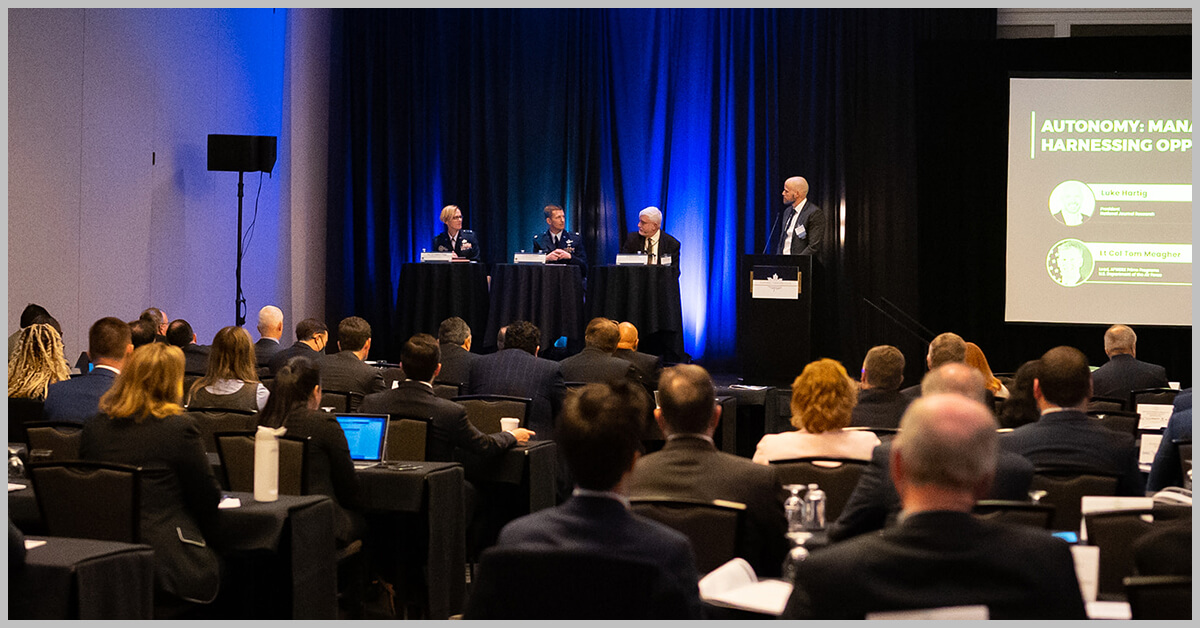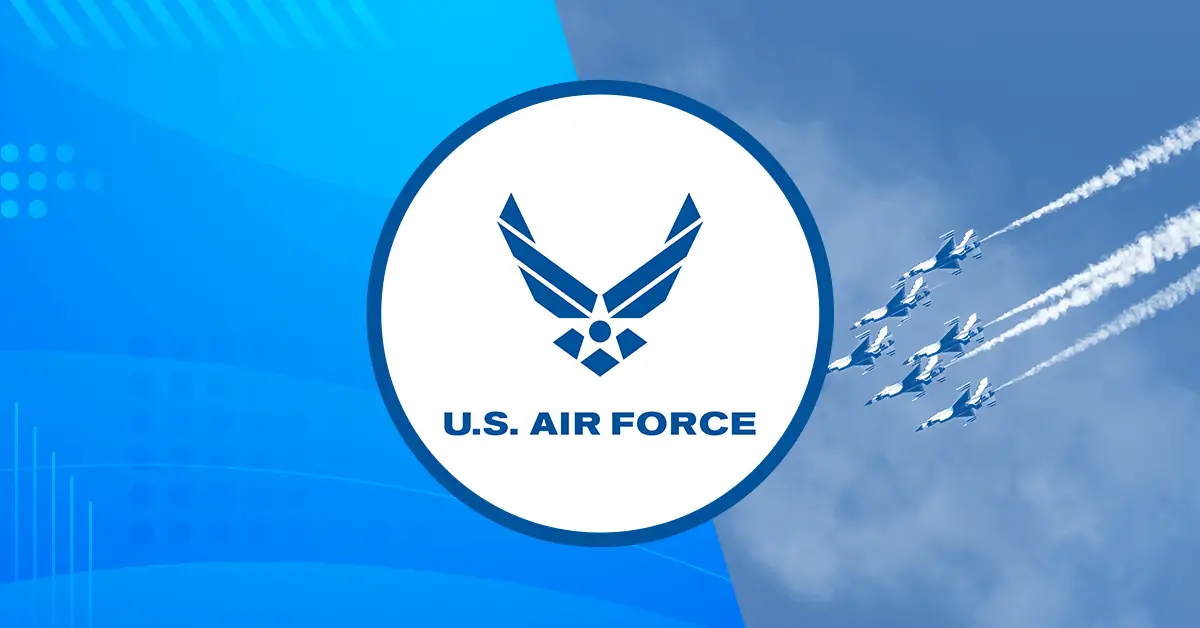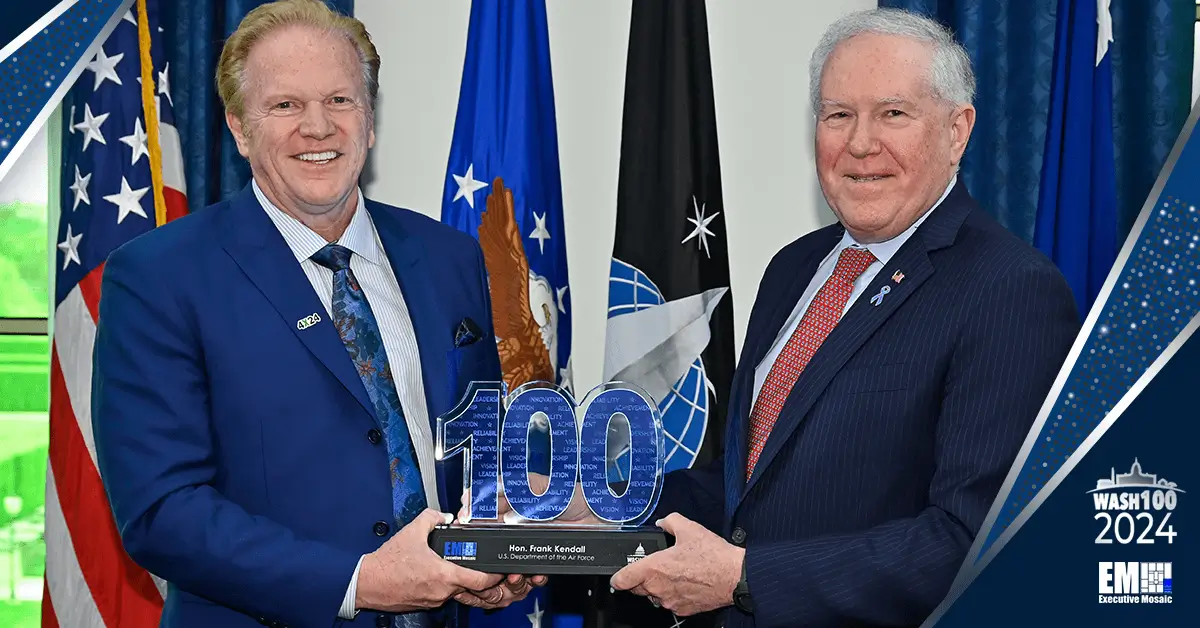In light of recent advancements in autonomous technologies, the Department of Defense has made tremendous efforts to understand the role of these tools in warfighting operations and fully harness the benefits autonomy can provide.
When implementing these technologies, cultivating a relationship between human operators and new technology is crucial, according to officials who participated in a panel discussion at the Potomac Officers Club’s 9th Annual Defense R&D Summit last week.
“Even with autonomous technologies or autonomous communications, there is still going to be a human at some point in the loop – and that is important,” said Maj. Gen. Heather Pringle, commander of the Air Force Research Laboratory and technology executive officer for the Department of the Air Force.
The key to ensuring a fruitful partnership between people and technology, she said, is trust.

Lt. Col. Tom Meagher, who leads AFWERX Prime Programs at the DAF, noted that in earlier days of autonomy, there were “incredible examples of organizational and personal trust barriers” to adopting autonomous tools.
“In a lot of cases, there was significant resistance from the operator perspective,” said Meagher.
Though there is still room for progress, there have been great improvements in viewpoints toward autonomy, which he said resulted from the demonstrated life-saving capabilities of autonomous technologies.
Pringle cited an avoidance tool that automatically maneuvers aircraft to avoid ground collision as an example. This tool, she said, has been installed on F-16 and F-35 vessels and has already been attributed to 13 pilots’ lives being saved.
The success of this technology, said Pringle, indicates a high level of trust.
Within the Department of the Navy, multiple potential autonomy use cases are currently being considered, according to Bruce Danly, director of research at the Naval Research Laboratory. These opportunities, he said, include autonomous firefighting on ships and routine maintenance tasks.
“But again, in all of these cases, it requires building trust and convincing the operator that they can trust a robot to put out the fire – or whatever else they need it to do – which is not an easy thing,” he stressed.
The Air Force, said Pringle, has been focused on transparency as a way to build trust in autonomy amongst its people.
“The more the operators get to interact with this technology and develop an understanding of when and why it is making its decisions with the rule sets it is operating on, the better their ability to use it and adopt it becomes,” she said.
Another element of building trust, added Danly, is establishing a standard for autonomy to include a human-in-the-loop for control. He noted that historically, science and engineering has involved defining standards.
These guidelines, said Danly, should extend beyond just the U.S. and to autonomous operations with the nation’s international partners.
“We also need to consider the fact that there may be different ways of engagement between the U.S. and our allies, and if we both have autonomous systems operating in the same domain, we must determine cross-national standards for building trust across systems,” he elaborated.
Meagher reiterated the significance of operator trust and emphasized the necessity of training and setting expectations for what the systems can and cannot do, which he said is “ equally as important to how they operate them.”
“As we advance these autonomous systems, it is very important to strike a balance between trust and overconfidence in them,” he said.

For a look into space technology – another current DOD priority – the Potomac Officers Club will be hosting its 2023 Industrial Space Defense Summit on April 27. The event will gather public and private sector leaders to discuss technological advancements and government-industry relationships in the evolving space domain. To learn more and register to attend, please visit the Potomac Officers Club events page.






